Find Help
More Items From Ergsy search
-
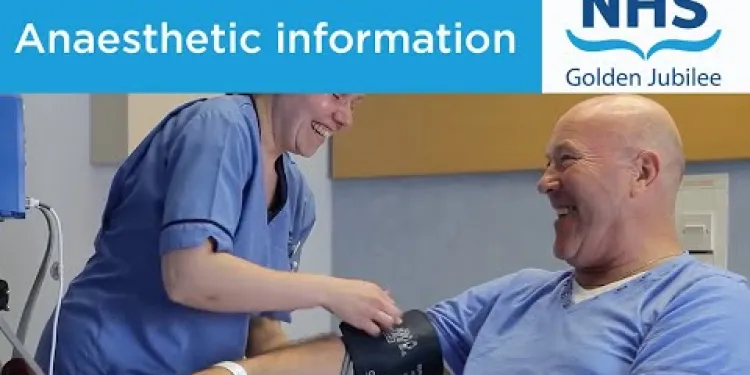
Knee replacement
Relevance: 100%
-

Total Knee Replacement
Relevance: 93%
-

Total knee replacement
Relevance: 93%
-
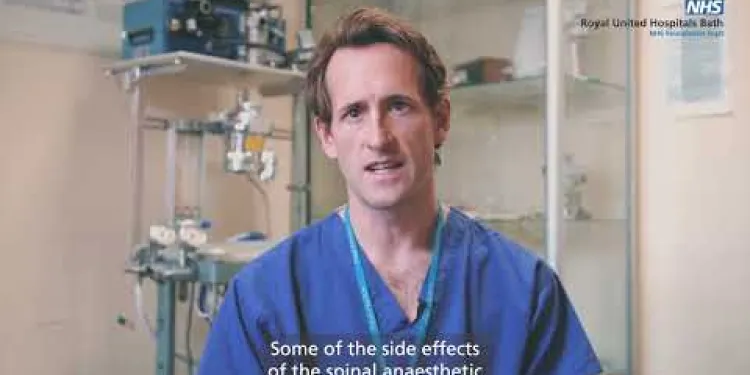
Your anaesthetic choices for your planned hip or knee replacement surgery at the RUH.
Relevance: 62%
-
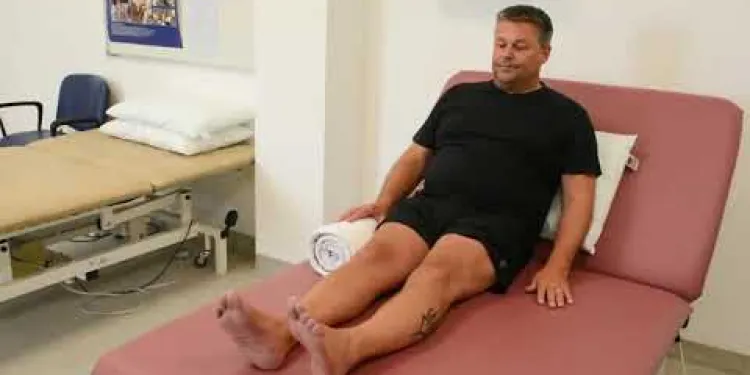
Joint School - Knee Exercises
Relevance: 58%
-
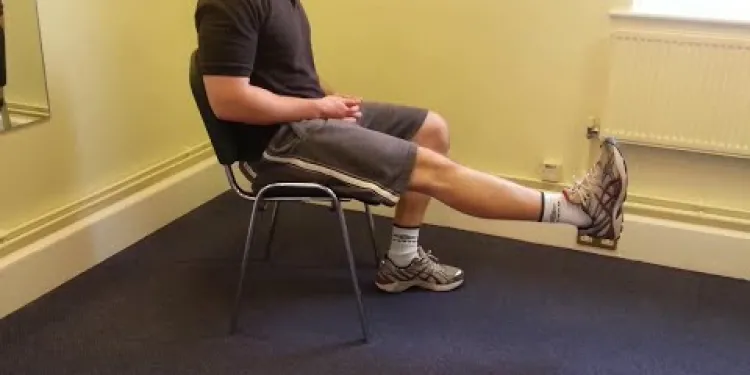
Knee Care Exercises
Relevance: 55%
-
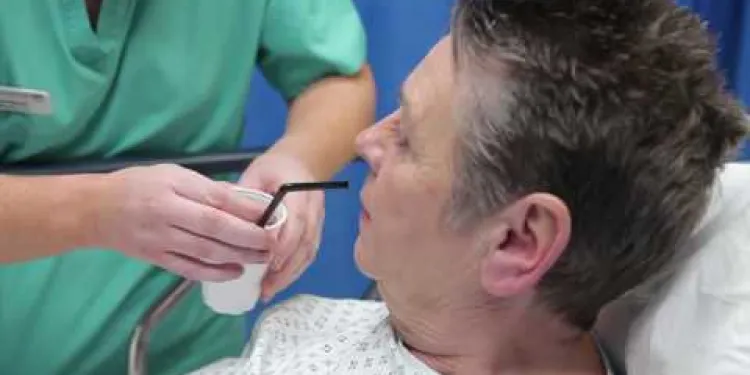
Hip replacement
Relevance: 41%
-
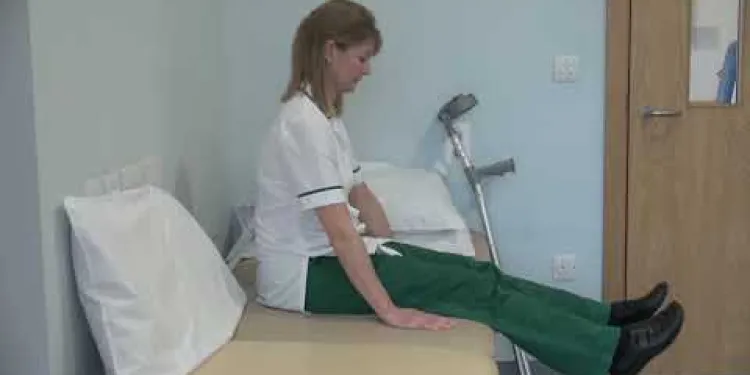
Hip replacement - getting into bed
Relevance: 40%
-

What is a hip replacement?
Relevance: 39%
-
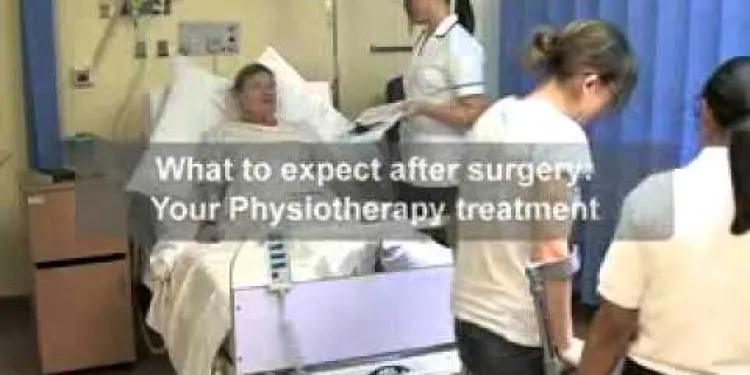
Total hip replacement
Relevance: 38%
-

Do I need a Hip Replacement?
Relevance: 38%
-

Total Hip Replacement
Relevance: 38%
-

Total hip replacement at Northumbria Healthcare
Relevance: 34%
-

Can both hips be replaced at the same time?
Relevance: 34%
-

What is minimally invasive hip replacement surgery?
Relevance: 34%
-

What is the recovery time for a hip replacement?
Relevance: 33%
-

What are the risks associated with hip replacement surgery?
Relevance: 33%
-

How long does a hip replacement surgery take?
Relevance: 32%
-

Will I need physical therapy after a hip replacement?
Relevance: 32%
-

How much does hip replacement surgery cost in the UK?
Relevance: 32%
-

What type of anaesthesia is used during hip replacement surgery?
Relevance: 30%
-

How do I prepare for hip replacement surgery?
Relevance: 30%
-

Would a wealth tax replace other taxes in the UK?
Relevance: 30%
-
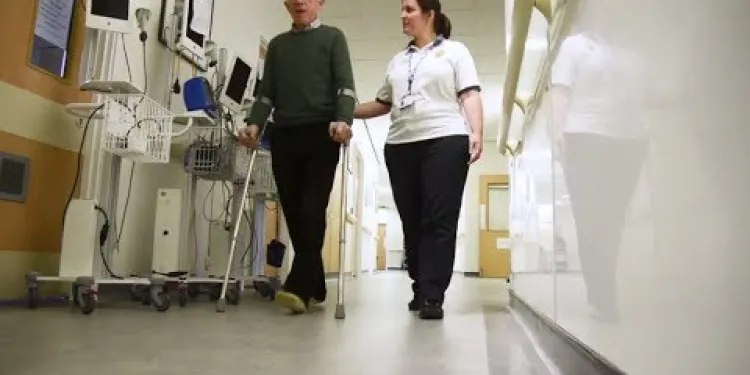
Having a hip replacement - Part Two: Recovery
Relevance: 28%
-

Can home colorectal cancer tests replace a colonoscopy?
Relevance: 27%
-
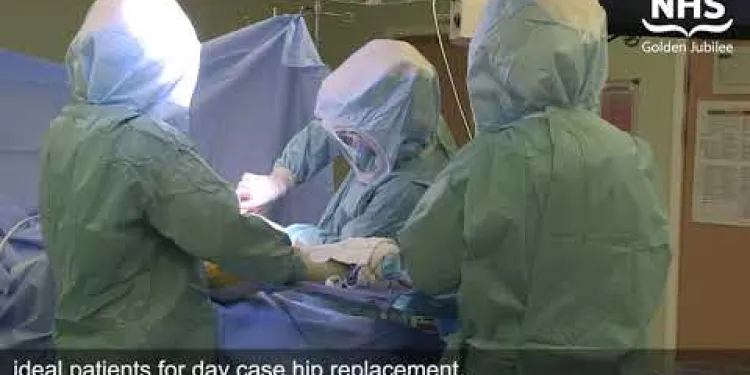
Same day discharge for NHS Golden Jubilee’s hip replacement patients
Relevance: 27%
-

Will the digital driving license replace the physical card?
Relevance: 27%
-

How long do hip replacement implants last?
Relevance: 25%
-

Can makeup with SPF replace sunscreen?
Relevance: 25%
-

Will I be able to return to normal activities after hip replacement?
Relevance: 23%
-
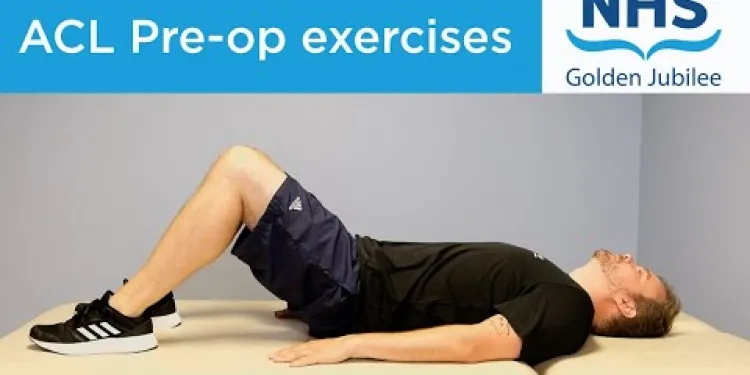
ACL pre-operation exercises
Relevance: 21%
-

Who is a candidate for a hip replacement?
Relevance: 21%
-
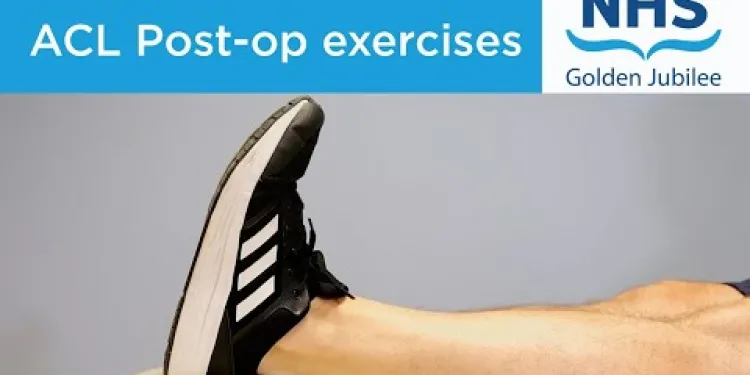
ACL exercises post-operation
Relevance: 20%
-

What can I expect during the first few weeks after hip replacement surgery?
Relevance: 18%
-
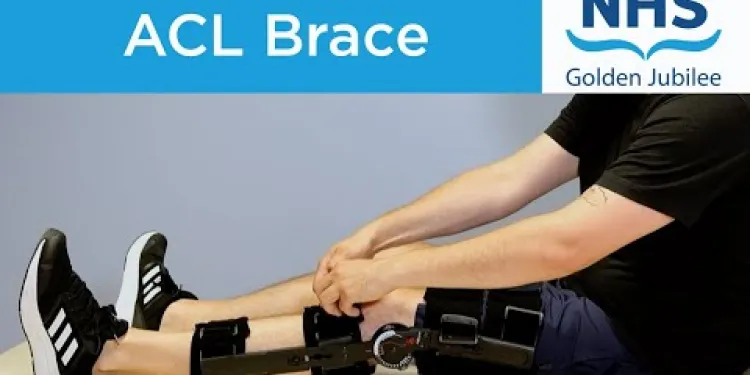
ACL Brace
Relevance: 15%
-

How to put someone into the recovery position | NHS
Relevance: 15%
-
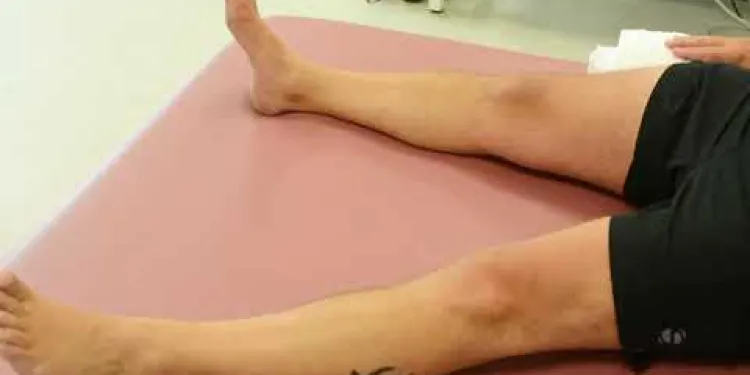
Joint School - Hip Exercises
Relevance: 14%
-

What happens if my Ring Doorbell Camera is stolen?
Relevance: 14%
-

Osteoarthritis of the Hip
Relevance: 14%
-

Do chiropractors only treat the spine?
Relevance: 13%
Knee Replacement: An Essential Guide for UK Residents
What is Knee Replacement?
Knee replacement, also known as knee arthroplasty, is a surgical procedure where a damaged knee joint is replaced with artificial materials. This intervention is performed to relieve pain and restore function in patients suffering from severe knee conditions like osteoarthritis, rheumatoid arthritis, or traumatic injury to the knee joint.Types of Knee Replacement Procedures
There are two main types of knee replacement surgery: total knee replacement (TKR) and partial knee replacement (PKR). In TKR, the entire knee joint is replaced, which is more common. Conversely, PKR involves the replacement of only the damaged portion of the knee, preserving more of the patient’s natural bone and tissue.Who Needs Knee Replacement?
Knee replacement is typically recommended for patients who experience chronic knee pain and stiffness, significantly impacting their mobility and quality of life. When conservative treatments like medications, physical therapy, and lifestyle changes fail to provide relief, knee replacement surgery might be considered.The Procedure
Performed under general or spinal anaesthesia, the surgery involves removing the damaged cartilage and bone from the surface of the knee joint and replacing them with a prosthetic implant. The entire procedure typically lasts between 1 to 2 hours. Patients often start physical therapy within a day of surgery to promote mobility and aid recovery.Recovery and Rehabilitation
Recovery from knee replacement surgery can take several months, during which patients might require walking aids initially and gradually regain strength and function through physiotherapy. In the UK, post-operative care often includes follow-up appointments to monitor progress and manage any complications.Risks and Complications
As with any major surgery, knee replacement carries risks like infection, blood clots, and implant-related issues, such as wear and loosening over time. However, advances in surgical techniques and prosthetic designs have significantly mitigated these risks, making knee replacement a highly successful procedure.Cost and NHS Support
The cost of knee replacement surgery in the UK can vary widely between private healthcare providers, but it is often available through the National Health Service (NHS) for those who meet specific clinical criteria. NHS support typically includes pre-surgery consultations, the surgery itself, and post-operative rehabilitation.Conclusion
Knee replacement surgery offers a promising solution for individuals suffering from debilitating knee pain and functional limitations. With proper medical guidance and rehabilitation, many patients achieve significant improvements in their quality of life. For individuals in the UK considering this procedure, the NHS provides comprehensive resources and support throughout the treatment journey.Knee Replacement: Important Information for UK Residents
What is Knee Replacement?
Knee replacement is an operation to fix a knee that hurts a lot. Doctors take out the bad parts of the knee and put in new ones. This helps to stop pain and makes it easier to move. People may need this operation if they have very bad knee issues like arthritis.Types of Knee Replacement
There are two types of knee replacement surgery: total knee replacement (TKR) and partial knee replacement (PKR). In TKR, doctors replace the whole knee joint. This is the most common. In PKR, only the broken part of the knee is replaced. This keeps more of the person’s real knee.Who Needs Knee Replacement?
People need knee replacement if their knees hurt a lot and make it hard to move. This surgery is for when other treatments, like taking medicine or doing exercises, do not help anymore.The Procedure
This surgery is done while the patient is asleep so they don't feel anything. Doctors take out the bad parts of the knee and put in new pieces that work like a real knee. The surgery takes 1 to 2 hours. After the surgery, patients often start exercises to help them move better.Recovery and Rehabilitation
Healing after knee surgery can take a few months. Patients may need crutches or a walker at first and will do exercises to get strong again. In the UK, people will have check-ups with their doctor to see how they are healing and to make sure everything is going well.Risks and Complications
Like all big surgeries, knee replacement can have problems like infections or blood clots. But new ways of doing surgery and better designs for replacement parts have made these problems less likely. Knee surgery usually works well to help people feel better.Cost and NHS Support
Knee replacement surgery can cost different amounts in the UK depending on where you go. But, for many people, the surgery is covered by the National Health Service (NHS). The NHS helps with doctor visits before the surgery, the surgery itself, and care after the surgery.Conclusion
Knee replacement surgery can really help people who have knee pain that makes life hard. With good care and exercises, many people feel much better after surgery. In the UK, the NHS offers a lot of help and information for people who need this surgery. Supportive tools or techniques can help you learn more, like using pictures or videos about knee replacement. Talking to your doctor can also help you understand and prepare for your surgery.Frequently Asked Questions
What is knee replacement surgery?
Knee replacement surgery, also known as knee arthroplasty, is a procedure to replace the weight-bearing surfaces of the knee joint to relieve pain and disability, most commonly due to osteoarthritis.
Who needs knee replacement surgery?
Knee replacement is typically recommended for individuals with severe knee pain or stiffness that limits daily activities, where non-surgical treatments like medication, physical therapy, or injections have not been effective.
What are the types of knee replacements?
There are two main types of knee replacements: total knee replacement (TKR) where both sides of the knee joint are replaced and partial knee replacement (PKR) where only one side of the knee joint is replaced.
How long does a knee replacement last?
Modern knee replacements are designed to last 15-20 years, but this can vary based on factors such as a patient's activity level, weight, and overall health.
What is the recovery time after knee replacement surgery?
Recovery time can vary, but most people are able to resume normal activities within 6 weeks, although full recovery and the return to all activities may take up to 6 months or more.
Are there any risks associated with knee replacement surgery?
As with any surgery, there are risks including infection, blood clots, implant problems, and nerve damage. However, serious complications are relatively rare.
How can I prepare for knee replacement surgery?
Preparation includes getting a thorough medical evaluation, discussing medications with your doctor, planning for post-surgery recovery, and potentially starting a pre-surgery exercise program to strengthen the muscles around your knee.
What kind of anesthesia is used during knee replacement surgery?
Knee replacement surgery is usually performed under either general anesthesia (where you are put to sleep) or spinal anesthesia (where you are numbed from the waist down).
Will I need physical therapy after knee replacement surgery?
Yes, physical therapy is an essential part of recovery. It helps to regain strength, flexibility, and range of motion in the knee.
Can I return to sports after knee replacement surgery?
Low-impact activities like swimming, walking, and cycling are generally recommended. High-impact activities like running and contact sports should be avoided to prevent undue stress on the new joint.
Is knee replacement surgery covered by the NHS?
Yes, knee replacement surgery is available on the NHS for patients who meet specific criteria, typically those with severe pain and disability that other treatments have not alleviated.
How long will I stay in the hospital after knee replacement surgery?
The hospital stay is usually between 1 to 4 days, depending on your specific situation and overall health.
Can knee replacement be done on both knees at the same time?
Yes, bilateral knee replacement can be performed on both knees in one surgery, but this is more intensive and requires a longer recovery time.
What can I do to prolong the life of my knee replacement?
Maintaining a healthy weight, engaging in low-impact activities, following a physical therapy regimen, and avoiding high-impact activities can help prolong the life of your knee replacement.
What should I do if I experience pain after knee replacement surgery?
It is normal to experience some pain after surgery, but if you experience severe or persistent pain, it's important to contact your healthcare provider as it could indicate a complication.
What is knee replacement surgery?
Knee replacement surgery is when doctors take out a hurt knee and put in a new one. This can help you walk and move better.
Tools and tips that can help you understand better:
- Look at pictures or videos about knee surgery.
- Ask someone to explain it to you in simple words.
- Read with a helper who can answer your questions.
Knee replacement surgery is when doctors fix your knee. They do this to help you feel less pain and move better. It is usually done because of joint problems like osteoarthritis.
Who needs knee surgery to get a new knee?
Knee replacement is when doctors fix your knee to make it feel better. This is usually for people who have really bad knee pain or stiffness. It’s when the pain makes it hard to do things every day. Before a knee replacement, doctors might try medicine, exercises, or special shots. If these do not help, then knee replacement might be a good idea.
What kinds of knee replacements are there?
There are two types of knee replacements:
Total knee replacement (TKR): This is when doctors fix both sides of the knee.
Partial knee replacement (PKR): This is when doctors fix only one side of the knee.
To help understand, you can use pictures or videos. Talking with a doctor or nurse can also help explain it more.
How long does a new knee last?
A new knee can last a long time. It might work well for 15 to 20 years.
If you take care of it, it may last even longer.
Some helpful tips:
- Ask your doctor about exercises.
- Use a cane or walker if you need help walking.
- Go to check-ups to make sure everything is okay.
New knee replacements usually work well for 15 to 20 years. But this can change. It depends on how active you are, your weight, and how healthy you are.
How long does it take to get better after knee surgery?
When someone has knee surgery, they need time to rest and heal. This can take a few weeks. Most people start to feel better after 6 weeks. It can take up to 3 months to feel good again. Sometimes, it can take up to a year to feel fully strong. Doing exercises and following the doctor's advice helps.
You can use tools like:
- Setting reminders to do exercises.
- Asking a friend or family member for help.
- Using crutches or a walking stick to move around.
Getting better can take different amounts of time for each person.
Most people can go back to doing normal things after 6 weeks. But it might take 6 months or longer to feel all better and do everything like before.
If you find reading hard, try using audiobooks or asking someone to read with you. Taking breaks can also help if you get tired.
Is knee replacement surgery safe?
Getting a new knee can help you move better. But like any surgery, there can be risks.
Here are some things that might happen:
- You might feel pain or see swelling.
- You might get an infection.
- You might feel stiff and find it hard to move your knee.
Doctors will help you stay safe. Tell them how you feel.
Here are some things that can help:
- Ask questions: Talk to your doctor about your worries.
- Use relaxation techniques: Breathing deeply can help you feel calm.
It is good to know what to expect and how to get better.
When you have an operation, some things can go wrong. You might get an infection, have blood clots, or problems with the parts they put inside you. Sometimes nerves can get hurt. But don't worry too much because big problems don't happen often.
How can I get ready for knee surgery?
Getting ready for knee surgery is important. Here are some simple steps you can follow:
- Talk to your doctor. Ask any questions you have.
- Do your exercises. Your doctor might give you special exercises to make your knee stronger.
- Plan for help at home. Ask family and friends if they can help you after the surgery.
- Get your home ready. Make sure it is easy to move around when you come back.
Remember, it's okay to ask for help. You can use tools like reminder notes or ask someone to come with you to appointments.
Get ready by visiting your doctor for a check-up. Talk about the medicine you take. Make a plan for after your surgery to get better. You might also do some simple exercises to make the muscles around your knee strong before the surgery.
What type of medicine is used to stop pain during knee surgery?
When you have an operation on your knee, doctors use special medicine so you won't feel pain.
This medicine is called anesthesia.
There are different kinds of this medicine:
- General anesthesia: Makes you sleep during the operation.
- Regional anesthesia (like a spinal or epidural): Numbs just the lower part of your body.
- Local anesthesia: Numbs only the area around your knee.
The doctor will talk to you about which is best for you.
If you want help to understand the information, you can:
- Ask a friend or family member to read it with you.
- Use pictures or videos about knee surgery.
- Talk to your doctor. They can explain things in a way that is easier to understand.
Knee replacement surgery is when doctors fix your knee. You can get medicine to make you sleep, so you don't feel anything. Or, you might get medicine to make your body numb from your waist down, so you can't feel your legs.
Do I need help to move my knee after surgery?
After you have surgery on your knee, you might need help to make it strong again. This help is called physical therapy. Physical therapy can make it easier for you to walk and move your knee.
Here is what might happen:
- A special person called a physical therapist will show you how to move.
- You will learn exercises that help your knee get better.
- The therapist will help you practice these exercises until you feel good.
Helpful tools:
- You can use a walker or a cane to help you walk.
- A chair with arms can help you sit down and stand up more easily.
Yes, physical therapy is very important for getting better. It helps make your knee strong again. It also helps your knee move better and bend easily.
Can I play sports after my knee surgery?
If you had knee surgery and want to play sports again, talk to your doctor first.
Your doctor can tell you when it is safe to play sports.
Some sports might be okay, like swimming or cycling. Avoid sports that have a lot of jumping or running.
You can also work with a physiotherapist. They help you get strong and ready for sports.
Remember to start slowly and listen to your body.
It's good to do gentle exercises like swimming, walking, and biking. Try not to do hard exercises like running or sports where people might hit or bump into you. This helps keep your new joint safe.
Does the NHS pay for knee replacement surgery?
If your knee hurts a lot and you need a new one, you might need knee replacement surgery.
The NHS can help pay for this surgery. This means you might not have to pay for it yourself. You need to talk to your doctor. They will check if you really need the surgery and if the NHS can pay for it.
If you find it hard to understand, you can ask someone to help you. You can also use talking apps that read the words to you or ask your doctor to explain it in a simple way.
Yes, you can get knee replacement surgery from the NHS if you really need it. They will help you if you have a lot of pain in your knee and can't move well. They will try other treatments first. If those do not work, then they might do the surgery.
How long will I be in the hospital after getting a new knee?
After you get a new knee, you might stay in the hospital for 2 to 3 days.
Sometimes, you can go home sooner if you feel better. The doctor will tell you when you are ready to go home.
It helps to have someone who can take care of you at home when you leave the hospital.
Remember to ask questions if you don't understand.
You might stay in the hospital for 1 to 4 days. It depends on how you are feeling and your health.
Can you have surgery on both knees at once?
Yes, you can have an operation on both knees at the same time. This is called a double knee replacement. **Ask Your Doctor**: - Talk to your doctor to see if it's a good idea for you. **Things to Think About**: - You might need more help at home after surgery. - Recovery might take a bit longer because both knees need to heal. **Helpful Tools**: - Use crutches or a walker to move around. - Have someone help you with daily tasks at home. Remember to always follow your doctor's advice.Yes, doctors can fix both knees in one surgery. But this is harder work and takes more time to feel better after.
How can I help my new knee last longer?
Keep your knee replacement working well by:
- Staying at a healthy weight.
- Doing gentle exercises.
- Following your therapy exercises.
- Not doing tough activities.
Here are some tips to make this easier:
- Use pictures to remember your exercises.
- Ask someone to help you with your exercises.
- Keep track of your activities in a diary.
What to Do if Your Knee Hurts After Surgery
Here are some steps to help if your knee hurts after surgery:
- Rest your leg. Take breaks and do not walk too much.
- Use ice packs to help with swelling and pain.
- Take pain medicine your doctor gave you.
- Raise your leg up when you sit or lie down.
- Do the exercises your doctor or nurse showed you.
If the pain does not get better, or if it gets worse, talk to your doctor or nurse.
After an operation, it is normal to feel some pain. But if the pain is very bad or does not go away, you should tell your doctor. This might mean something is wrong.
Useful Links
- Ergsy carfully checks the information in the videos we provide here.
- Videos shown by Youtube after a video has completed, have NOT been reviewed by ERGSY.
- To view, click the arrow in centre of video.
- Most of the videos you find here will have subtitles and/or closed captions available.
- You may need to turn these on, and choose your preferred language.
- Go to the video you'd like to watch.
- If closed captions (CC) are available, settings will be visible on the bottom right of the video player.
- To turn on Captions, click settings .
- To turn off Captions, click settings again.
More Items From Ergsy search
-

Knee replacement
Relevance: 100%
-

Total Knee Replacement
Relevance: 93%
-

Total knee replacement
Relevance: 93%
-

Your anaesthetic choices for your planned hip or knee replacement surgery at the RUH.
Relevance: 62%
-

Joint School - Knee Exercises
Relevance: 58%
-

Knee Care Exercises
Relevance: 55%
-

Hip replacement
Relevance: 41%
-

Hip replacement - getting into bed
Relevance: 40%
-

What is a hip replacement?
Relevance: 39%
-

Total hip replacement
Relevance: 38%
-

Do I need a Hip Replacement?
Relevance: 38%
-

Total Hip Replacement
Relevance: 38%
-

Total hip replacement at Northumbria Healthcare
Relevance: 34%
-

Can both hips be replaced at the same time?
Relevance: 34%
-

What is minimally invasive hip replacement surgery?
Relevance: 34%
-

What is the recovery time for a hip replacement?
Relevance: 33%
-

What are the risks associated with hip replacement surgery?
Relevance: 33%
-

How long does a hip replacement surgery take?
Relevance: 32%
-

Will I need physical therapy after a hip replacement?
Relevance: 32%
-

How much does hip replacement surgery cost in the UK?
Relevance: 32%
-

What type of anaesthesia is used during hip replacement surgery?
Relevance: 30%
-

How do I prepare for hip replacement surgery?
Relevance: 30%
-

Would a wealth tax replace other taxes in the UK?
Relevance: 30%
-

Having a hip replacement - Part Two: Recovery
Relevance: 28%
-

Can home colorectal cancer tests replace a colonoscopy?
Relevance: 27%
-

Same day discharge for NHS Golden Jubilee’s hip replacement patients
Relevance: 27%
-

Will the digital driving license replace the physical card?
Relevance: 27%
-

How long do hip replacement implants last?
Relevance: 25%
-

Can makeup with SPF replace sunscreen?
Relevance: 25%
-

Will I be able to return to normal activities after hip replacement?
Relevance: 23%
-

ACL pre-operation exercises
Relevance: 21%
-

Who is a candidate for a hip replacement?
Relevance: 21%
-

ACL exercises post-operation
Relevance: 20%
-

What can I expect during the first few weeks after hip replacement surgery?
Relevance: 18%
-

ACL Brace
Relevance: 15%
-

How to put someone into the recovery position | NHS
Relevance: 15%
-

Joint School - Hip Exercises
Relevance: 14%
-

What happens if my Ring Doorbell Camera is stolen?
Relevance: 14%
-

Osteoarthritis of the Hip
Relevance: 14%
-

Do chiropractors only treat the spine?
Relevance: 13%


